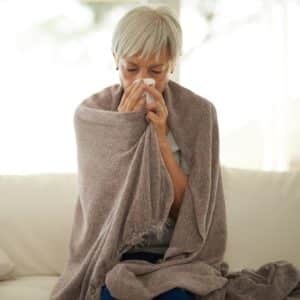Ragweed Season is Just Around the Corner! Are You Prepared?
- Posted on: Aug 30 2021
 Ragweed season has already begun in Austin! With pollen levels on the rise, you may be feeling an increase in your allergy symptoms. Common allergy symptoms include congestion, sinus pressure, sneezing, itchy and watery eyes, and ear-popping and pressure; but these symptoms can vary from person to person.
Ragweed season has already begun in Austin! With pollen levels on the rise, you may be feeling an increase in your allergy symptoms. Common allergy symptoms include congestion, sinus pressure, sneezing, itchy and watery eyes, and ear-popping and pressure; but these symptoms can vary from person to person.
In Austin, ragweed season typically starts in August and can last until November, with its peak occurring in early October. If you know you are allergic to ragweed or have been experiencing an increase in your allergic symptoms read on to see what can be done to help!
SUBLINGUAL IMMUNOTHERAPY:
Sublingual immunotherapy (SLIT), commonly referred to as allergy drops, is the preventative way to treat allergies. Allergy drops are formulated specifically for each patient and are based on their allergy skin testing and symptom history. They are composed of highly concentrated allergens and can be administered by the patient under the tongue daily. Over time, the repeated exposure to the allergens contained in the drops triggers the immune system to form antibodies. When you breathe in an allergen that normally results in congestion or sneezing, these antibodies will help the immune system block the allergic reaction from happening in the first place. With sublingual immunotherapy, the immune system typically starts to form antibodies after 6 weeks of continued use and after 6 months, most patients feel like their allergy symptoms are starting to subside. After 36 months of continued allergy drop use, patients will have lifelong protection from the allergies they were treated for, even after discontinuing drops.
MEDICATION:
For acute allergy symptoms, or for patients who recently started sublingual immunotherapy, medication may be a good treatment choice. Over-the-counter nasal sprays such as Flonase, and oral allergy medication like Zyrtec®, Claritin®, and Allegra® can be used to help reduce your symptoms. Prescription allergy sprays and medications are sometimes needed for patients experiencing more severe symptoms. All of these medications, even when used daily only temporarily provide relief and put a “bandaid” on your symptoms.
HOME REMEDIES:
In addition to taking medication or using allergy drops, there are also many things you can do at home to help reduce your allergy exposure.
- Keep windows and doors closed when pollen levels are high to reduce the amount of allergens entering your home.
- Invest in a high-quality air purifier such as a HEPA filter to remove allergens from the air inside your home.
- Wash bedding and pillows frequently to reduce dander and dust mite exposure.
- Take a shower and change your clothes after spending time outside when pollen levels are high.
- Use saline rinses in the nose to gently flush out pollen.
Schedule a Consultation
Tagged with: allergens, allergies, allergy, Allergy drops, allergy symptoms
Posted in: Allergies, Allergy Drops

